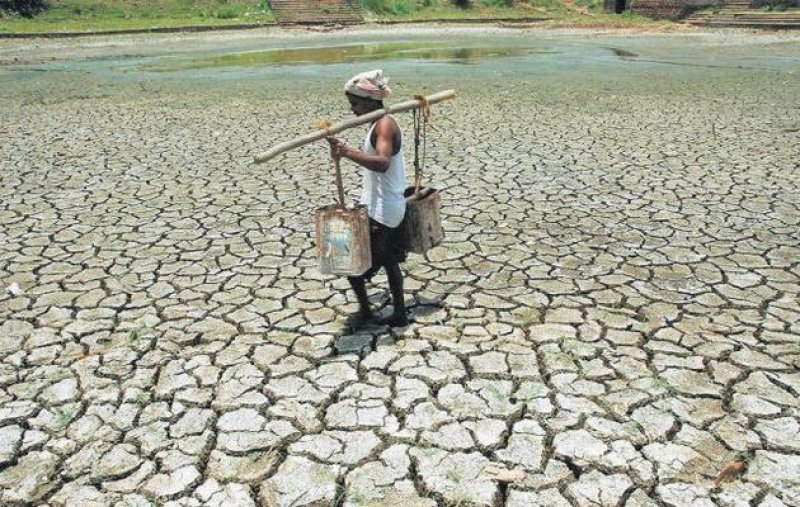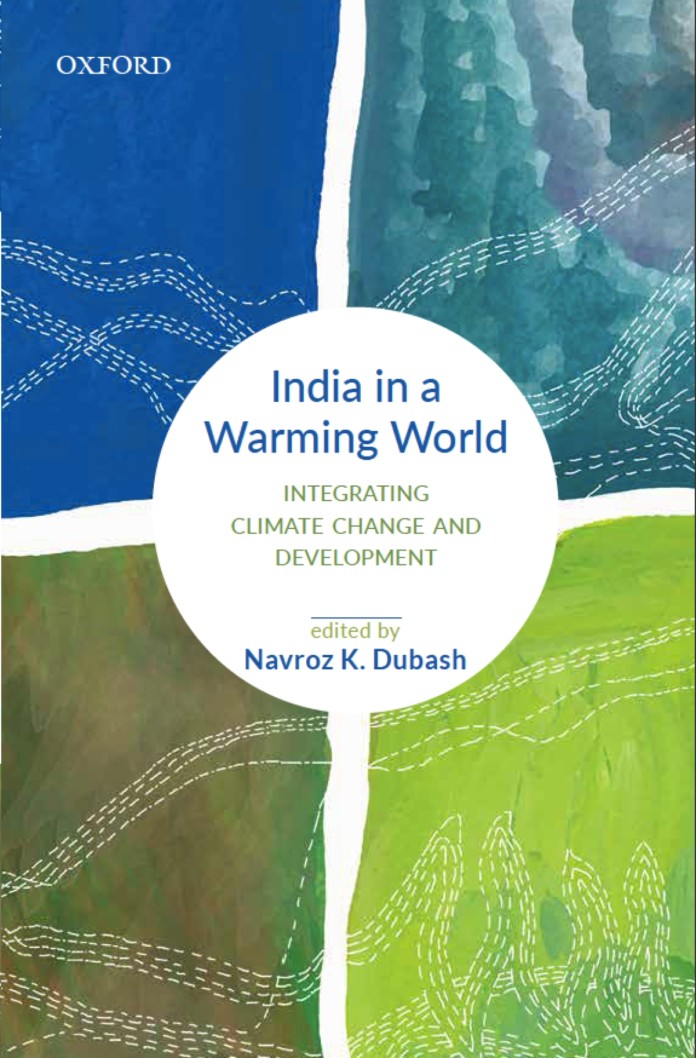Navroz Dubash’s new book India in a Warming World – Integrating Climate Change and Development,’ published by Oxford University Press, set for release in January 2020, couldn’t have come sooner. It’s a comprehensive collection of fresh perspectives on multiple topics on how India could address the threat of climate change better and faster.
Navroz Dubash is a Professor at Centre for Policy Research, New Delhi. CPR has been one of India’s leading public policy think tanks since 1973. He is also the coordinator of the Initiative on Climate, Energy, and Environment. His research and policy interests include climate change policy and governance, the political economy of energy and water, the regulatory state in the developing world and the role of civil society in global environmental governance. In 2015 Prof. Dubash was conferred the 12th T N Khoshoo Memorial Award in recognition of the impact of his work on Indian climate change policy and the international discourse on global climate governance.

His other edited books include Mapping Power: The Political Economy of Electricity in India’s States, A Handbook of Climate Change and India: Development, Policy and Governance, and The Rise of the Regulatory State of the South. His book Tubewell Capitalism was awarded the SR Sen prize in 2006 for best book in agricultural economics and rural development in India.
When almost everyone – both actively and remotely – associated with climate change in India – is struggling to come to grips with complex terms such as climate mitigation, adaptation, policy, climate finance, this book can come to their rescue. India in a Warm World is more than a primer. It invites readers to conversations on topics that are usually messy and conflicted.
An informed debate is possible only when practitioners have a platform to share their multiple perspectives and ideas and when they are accessible to civil society. The need for such platforms is urgent because they educate and embolden civil society players to apply informed pressure on policy makers.
In an effort to reach large number of readers and remove the barrier of a high price tag, MacArthur Foundation is supporting free PDF download of the book.
Bridging the Knowledge Gap
Given the complexity and enormousness of the impact of policies surrounding climate change policy makers too need better access to many sides of the debate. Navroz’s singular contribution through this book is bridging the knowledge gaps of all the players with data-driven fresh perspectives and convincing arguments. Hopefully, this book will help faster decision-making and more efficient execution.
Since this magazine’s focus is business of sustainability, its focus here is on two chapters – Climate Finance and Indian private sector’s role. Here’s a list of a few sharp observations on various related areas like policy and development vs justice etc. Some edited excerpts:
The past decade has witnessed a rise in climate institutions in India, but it has been a reactive and ad hoc. It has not led to the creation of stable, long-lasting, and well-coordinated institutions and governance processes that can appropriately respond to climate concerns.
As climate actions are not always costly to development actions but sometimes complementary, a possible path forward exists for India to engage with both climate and development productively.

The future success of Indian climate change activism depends on reclaiming the climate justice narrative from the government. Whether Indian CSOs (civil society organizations) will accomplish this through international networks or by building local power is yet to be seen.”
One of the weak links in India is the pathetic capacity of the 29 states in understanding the brief, leave alone their ability to execute climate projects. States often mistake climate change projects for development projects. The author argues for enhancing states’ overall capacity. He also urges the central government to get the states engaged proactively from the concept stage of projects rather than treating them as mere implementation agents.
On climate finance, the author says that “Overall, India has been able to draw and leverage funds for climate change from a variety of sources. The quantum of funds, however, is inadequate given the large requirements. Clear policy signals in alignment with the NDCs and balancing of funds between mitigation and adaptation needs will be important areas of concern going ahead.” Also, the big question is whether the current institutional mechanism is effective enough to deliver the transformational change that India needs.
“India’s requirements for climate finance are large and it needs to substantially scale-up existing finances to be able to meet its needs. Most of the domestic as well as international funding labelled as climate finance has come in the form of small projects, and these are unlikely to have a transformational impact on India’s development path.”
Clearly, the success of India’s climate change action in the coming years will depend on how soon it accepts the recommendations made by an influential body in 2018. It recommended the constitution of a ‘Mission Mode Authority’, consisting of representatives of all missions and headed by the Prime Minister of India, to review implementation efforts, and to ensure an integrated, rather than fragmented, approach to climate change.”
It appears that in India only ‘mission modes’, like the space mission or Swachh Bharat, seem to work.
Recent Papers: “Revisiting climate ambition: The case for prioritizing current action over future intent.”










